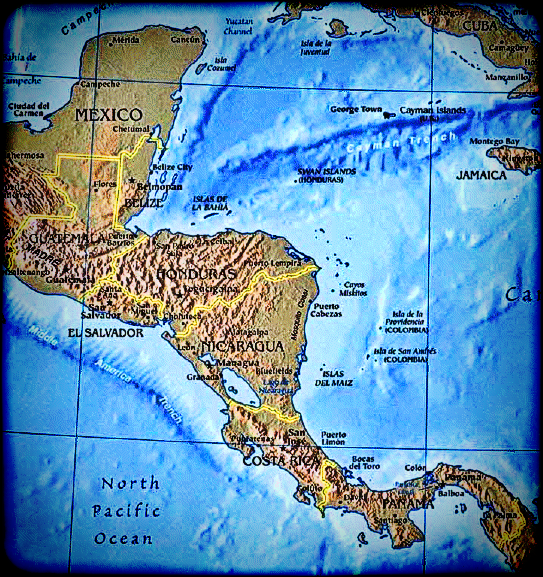
Along the east Texas border, in towns like Brownsville, children – including very young children – are coming out of the Mexico desert, alone. They've fled their towns and cities in Central America. Alone, they've run a gauntlet across Mexico, of bandits, corrupt police, and drug gangs. Robbed, beaten, sometimes raped, kidnapped. They're the ones who survived. Others died on the way. At least 60,000 are expected this year. ... Can you imagine being 8, 10, 14 years old, fleeing your home town – Tegucigalpa, Guatemala City, San Salvador – and traveling alone on top of a train across Mexico?
— Tom Ashbrook, introducing the June 9 edition of his program "On Point", broadcast on public radio stations across the country.
Tom Ashbrook's dramatic description of the mass migration of Central American children is representative of much of the news coverage of the crisis. Ashbrook's first guest was Sonia Nazario, who won the 2003 Pulitzer Prize for feature writing for her Los Angeles Times series, "Enrique's Journey". The series told the story of a young Honduran boy who traveled alone across Mexico to reach his mother. He made much of the perilous journey atop the infamous Mexican train known as la Bestia – the Beast.
This week, the respected Salvadoran online newspaper El Faro published an interview that one of its reporters conducted with a Salvadoran smuggler who dismisses the notion that many children make the journey alone, as Enrique did. The smuggler says that the children are accompanied to the border by smugglers hired by their parents living in the United States. He insists that the smugglers watch over the children until they are taken into custody by U.S. authorities as part of a process that turns the children over to relatives in the United States.
The El Faro reporter who interviewed the smuggler is Oscar Martinez, author of a widely praised book titled The Beast about the migrants' journey from Central America. A review in Publisher's Weekly said Martinez's "searing account of the hardships suffered by Central American migrants headed through Mexico to the United States comes from true shoe-leather reporting."
Here are some excerpts from what the smuggler told Martinez, as published in El Faro, under the headline: "The Children Don't Go; They are Taken".
It makes me laugh when the media talk about the children traveling alone. No one goes alone. The smugglers take them all. If I were undocumented in the United States, am I going to just tell my child: Come on up? Noo, it's not that way.
...
It's a big business. To take them to the U.S.-Mexico border, Reynosa, for example – they are spending a lot of money. The Zetas charge anyone, big or small, about $2,000 to pass through their territory. You pay about $500 to the person who gets you the across (the border). They get the child across. They don't just throw them out there to walk. ... They prepare them well. They tell them to say that they are traveling alone, that they are trying to find their mother, their father. They need to forget that they were going with a coyote. ... There is always someone making sure that the child sees someone with the police, that the child is not by himself, that the authorities take the child in. From that point they are in safe hands. ... Then the coyote informs the family, "The child is in the hands of the law. Give it some time." The authorities get in touch with the mother immediately because the child has names and telephone numbers.
...
There are people who are charging less. ... Because the family knows that it's now easier. So the people aren't paying the $7,000. My understanding is that some are charging $4,000 or $5,000. ... I have some friends who say that the minors are easy money. And that's the way it is. It's a real blessing that the police detain the children. ... If a child has one of his parents in the United States, he is turned over to them. It's also common that they are turned over to aunts or uncles or older brothers or sisters.
